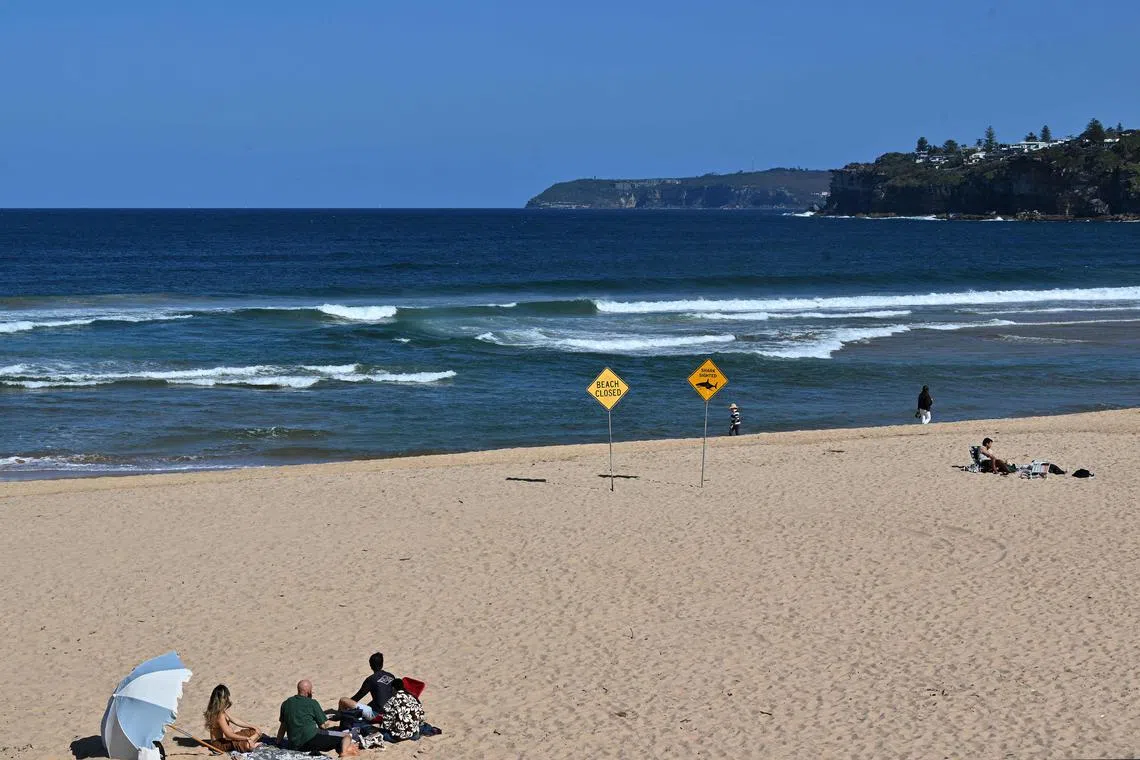Popular Sydney beach deploys drones, helicopter to monitor waters after fatal shark attack
Sign up now: Get insights on Asia's fast-moving developments

The experienced surfer was pulled from the water by other surfers, but had lost too much blood and died at the scene.
PHOTO: AFP
SYDNEY - The Australian authorities on Sept 7 deployed drones and a helicopter to monitor the waters around a popular Sydney beach after a surfer was killed by a great white shark on Sept 6, officials said.
Two beaches in Australia’s most populous city remained closed on Sept 7 after the attack on the morning of Sept 6 that took place about 100m from shore while the man was surfing with friends at Long Reef Beach, in the north of the New South Wales state capital.
The experienced surfer, identified by Australian media as Mr Mercury Psillakis, was pulled from the water by other surfers, but had lost too much blood and died at the scene, police said.
The man, who left a wife and young daughter, lost “a number of limbs” and his surfboard was broken in two, police said.
It was the first shark attack death in Sydney since 35-year-old British diving instructor Simon Nellist was killed off Little Bay in February 2022. That had been the city’s first shark attack death since 1963.
On Sept 7, the state’s main water rescue organisation, Surf Life Saving NSW, deployed drones and a helicopter to surveil the area for the shark, said the NSW Department of Primary Industries and Regional Development (DPIRD).
More so-called Smart drumlines, which use satellite technology to notify the authorities when a shark is hooked on a baited line, had also been installed, it said in a statement.
Government shark biologists, after assessing photos of the victim’s surfboard, “determined a white shark approximately 3.4m to 3.6m in length was likely responsible” for the mauling, DPIRD said.
White sharks are also commonly known as great white sharks or white pointers, according to the agency.
The Sept 6 incident marked the fourth fatal shark attack in Australia in 2025, data from the state-run operator of Sydney’s Taronga Zoo shows. In March, a surfer was killed by a shark in shallow waters at a remote beach in Western Australia.
Ocean-loving Australians were advised to monitor a so-called SharkSmart app, which alerts swimmers and surfers in real time when a tagged shark nears popular beaches.
There have been more than 1,280 shark incidents around Australia since 1791, of which more than 250 resulted in death, according to a database of the predators’ encounters with humans.
Australia ranked behind only the US in the number of unprovoked shark bites on humans in 2024, according to the University of Florida’s International Shark Attack File. REUTERS, AFP


